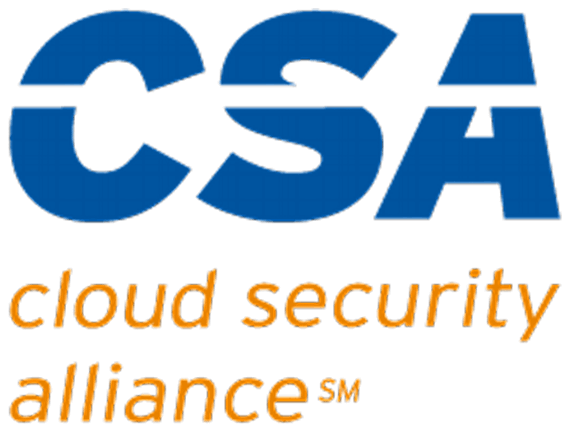Introduction
Whether your business is a startup or a well-established enterprise, you cannot afford to ignore the vital role of information technology (IT). A good IT provider can help your business grow and succeed, while a deficient service provider can cause significant problems. To get the most out of your IT services, it is essential to understand what to look for in a provider so you can select the right match for your needs.
MSP versus break-fix
When you begin vetting IT service providers, you may hear the terms “MSP” and “break-fix.” In the simplest terms, both break-fix IT support companies and managed services providers (MSP) provide IT services to other businesses. But what differentiates these two types of IT service providers?
MSPs provide a range of services, from on-demand support to full-scale Managed Services. But one of the things that set them apart from break-fix IT companies is their focus on proactively preventing problems from happening in the first place. By identifying potential issues and addressing them before they cause trouble, MSPs can help businesses avoid costly downtime and data loss. MSPs also offer 24/7 monitoring and support, so companies can rest assured that their systems are always running smoothly. And when problems do occur, MSPs are there to help with fast and reliable service.
By comparison, break-fix IT support companies primarily offer an on-demand response to IT support needs without the proactive management aspect of MSPs. This means that clients can contact the provider when they experience an issue, and someone will be available to help them resolve it. The company’s services are usually billed on a per-incident basis, which can be expensive for businesses that experience frequent problems.
Know your needs and goals
Before you begin shopping for an IT service provider, you must assess your current IT situation and needs. What are your primary goals? What business-specific technologies do you need support for? What are your budget constraints? Once you have a clear idea of what you need and your goals, you can start researching providers.
When evaluating providers, consider their experience and expertise in the technologies that are important to your business. Ask potential providers about their experience with the specific technology you need and how they handle incident response and preventative measures. Also, get references and ask the other businesses specific questions about their satisfaction with the provider’s service.
What follows are five core services that your IT provider must furnish and support – you may need more services than these, but this list comprises the fundamental core of any modern IT infrastructure.
Security: protect your data and systems from cyberattacks
Cyberattacks are becoming more sophisticated and common, making it critical for businesses to have reliable IT services and security protocols in place to protect their data and systems. Your IT services provider must offer security solutions that can help prevent, detect, and mitigate cyberattacks. Some key security features to look for include:
- Firewall: a firewall is a security system that monitors and controls the incoming and outgoing network traffic based on predetermined rules. It helps protect your network from unauthorized access and can detect malicious activity.
- Antivirus Software: antivirus software is used to detect and remove malware from computers and networks. It helps protect your systems from infection by viruses, worms, Trojans, ransomware, and other types of malware. It’s becoming more common to furnish antivirus tools as part of a larger suite of software that provides total endpoint security management, combining antivirus, email and browser protection, malware scanning, and more.
- Patch Management: patch management is the process of applying security patches to your systems. It ensures that your systems are up-to-date with all necessary patches and other software updates, which can help prevent cyberattacks.
A recent study found that the average cost of a data breach in the United States is $7.3 million. This number will continue to rise as companies become more reliant on technology. As a business, it is vital to have an IT services provider that can offer security solutions that can help your business from becoming the next victim. Ask any prospective IT providers about their security practices. You should also ask about their experience dealing with data breaches and what kind of solutions they have to prevent them.
It’s also important to ensure that your provider has a robust incident response plan in place. If a data breach does occur, they will need to be able to respond quickly and effectively. Otherwise, the damage could be catastrophic.
Backup and disaster recovery: keep your business running
In today’s business world, it’s not a matter of if you’ll experience a data loss incident but when. That’s why businesses must have a reliable backup and disaster recovery (BDR) plan. Your IT services provider should offer BDR as part of their service offerings. It is vital that your business can recover from a data loss incident successfully.
There are many different types of BDR solutions available, so it’s essential to work with an IT services provider that understands the various options and can help you find the best solution for your business. The most common types of BDR solutions are cloud-based backups, local-area network (LAN) backups, and replication. Each option has its benefits and drawbacks, so it’s important to understand what each option can offer your business.
Cloud-based BDR solutions are becoming increasingly popular as they offer businesses the ability to back up their data off-site. Local backups, which involve backing up data to a local storage device, are another common option. Finally, replication is another BDR solution that involves copying data to a secondary location to protect it in case of a disaster. A primary benefit of all BDR solutions is the ability to restore data and services to a different location, in case of a disaster such as fire or water damage.
The bottom line is that having a BDR plan in place is essential. Make sure you work with an IT services provider who can help you create one that meets your specific needs.
Mobility and remote access: work from anywhere, anytime
As the business world becomes increasingly decentralized, the need for employees to be able to work remotely has increased. One recent study found that working from home at least part-time has grown more than 100% since 2005. This is due, in part, to advances in technology that have made it easier for employees to connect with their teams and collaborate on projects no matter where they are.
Remote work capabilities are important because they allow companies to tap into a global talent pool, reduce costs, and improve employee productivity. However, not all businesses are set up to enable employees to work remotely. To be successful in a remote work environment, employees need the proper tools and training. It is more important than ever for your IT services provider to offer a comprehensive mobility solution that allows your staff to work from anywhere, anytime.
Offering remote work capabilities means opening up at least some of your data and systems to outside access, so strong security becomes even more crucial. By offering remote work capabilities, businesses are exposing themselves to attacks from malicious actors who may be looking to exploit vulnerabilities to steal data or damage systems. The right IT services provider will take the necessary steps to secure your technology, so you can protect your business while still enjoying the many advantages of remote work.
Cloud services: take advantage of the latest productivity tools
Cloud services are becoming an increasingly important part of many businesses and for good reason. They offer many advantages over traditional IT setups. By choosing a business IT provider that offers cloud-based services, you can take advantage of the latest technology trends and improve your business’s efficiency. For example, using virtual desktops rather than physical (local) desktops allows your staff to work from anywhere while having access to the same desktop environment, systems, and data. This means that they can work on their task or project from home, office, or even while traveling. And because everything is stored remotely, there is no need to worry about losing any data if your device is lost or stolen.
Cloud services offer businesses more productivity and flexibility by allowing employees to access important files and applications from any computer or mobile device with an internet connection. Additionally, cloud services can help businesses reduce costs by reducing the need for expensive hardware and software licenses. Cloud-based applications often require less computing power, storage space, and bandwidth than their traditional counterparts, which can lead to lower operating costs for your business.
Cloud services are also scalable, which means businesses can add or remove users as needed without purchasing new servers or worrying about any negative impacts on the service. In addition, scalability makes it possible for businesses to pay for only the services they need and not worry about overages or underutilization. This can be a significant cost saving for companies.
Troubleshooting tips and advice for common computer problems
Businesses that rely on technology can sometimes find themselves in a difficult situation when their systems fail or misbehave. The best remedy for this is having a good relationship with an IT provider that you can count on for system maintenance and support, along with troubleshooting tips and advice for common computer issues.
Education is vital when it comes to preventing technology-related problems. Your business IT provider should be able to provide you with the education you need to keep your systems running smoothly. This includes providing preventive maintenance tips and advice on how to troubleshoot common issues. A good IT provider will offer training and support so that you can learn how to use and maintain your system. They should also be able to help you develop a disaster recovery plan in case of an emergency.
Conclusion
When it comes to business, information technology (IT) is critical. You need to be sure that you are getting the most out of your IT provider to keep your business running smoothly. Your business IT provider must offer cybersecurity services, backup and disaster recovery, remote work technology, cloud services, education, and advice. This will keep your data and systems safe, but it will also help your employees stay productive and connected during times of crisis. So if you’re looking for a comprehensive solution that can keep your business running smoothly, be sure to partner with a provider that offers these essential services.




